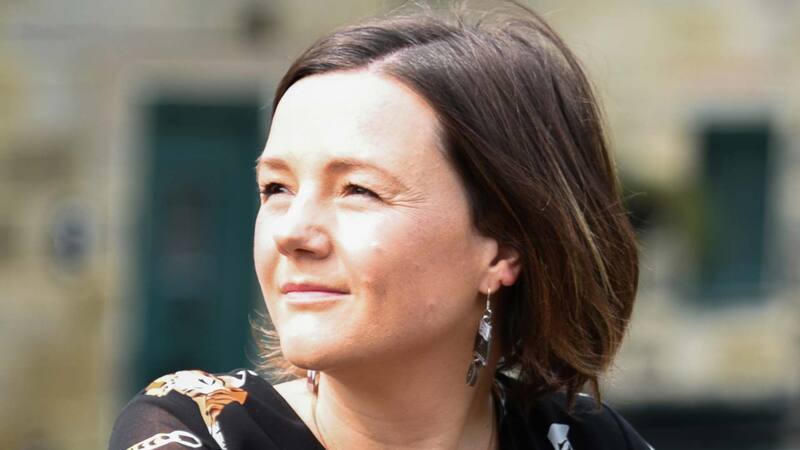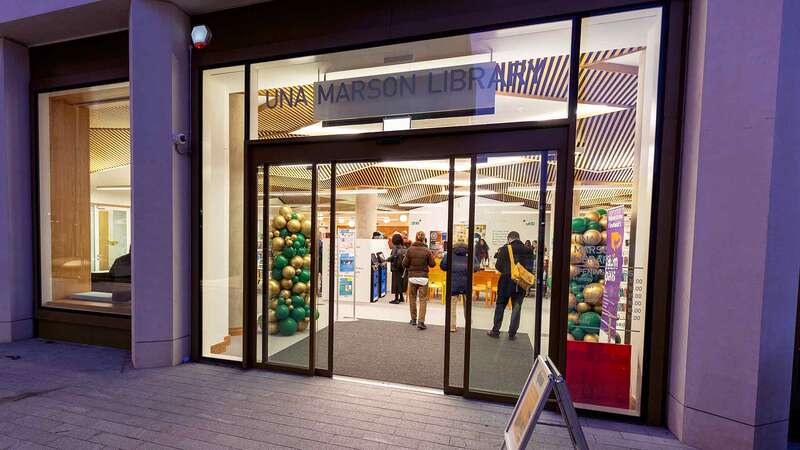You are viewing your 1 free article this month. Login to read more articles.
ACE 'just saved indie publishing', say presses
Indies The Bookseller has contacted have spoken of their "huge relief" after receiving funding from Arts Council England's £160m emergency coronavirus pot, though for many the grants are not a "fix-all".
Kevin Duffy, co-founder of Bluemoose Books said if they hadn't received the funding, its situation would have been "dire".
"We would have had to mothball this year, and concentrate on selling books online," he said. Due to the grant, Bluemoose is able to continue its development and mentoring programmes, which include working with Muslim women in Bradford to form the first women-only Muslim publishing outfit.
"An important part of what we do is find writers from working class and diverse backgrounds, which is what we will now be able to continue to do," he said.
Catherine Taylor, the commercial manager of Brixton Review of Books, a non-profit, quarterly magazine, said without the funding the company would have "struggled to produce the next issue, which is due out imminently, or any further issues". The magazine, which supports small presses and emerging authors, will now be able to publish "well into 2021". Taylor added the team was "delighted, relieved and newly galvanised" by the grant, and "fully determined to make the most of it".
"With lockdown coinciding with the publication of our spring issue, we have not been able to deliver as usual to libraries, cultural centres and so forth, or distribute copies outside Brixton Tube, so we are offering to post copies of our next issue, out in the third week of June, for free to those who sign up for it, and will extend our subscription offer to existing subscribers (normally four issues a year), to one extra issue per year", she said.
"In addition we will be increasing our payments to contributors, and also offering cheaper and discounted advertising rates to small presses which need support."
Publishing director Nathan Connolly described the desperate situation Liverpool-based press Dead Ink had been in prior to receiving confirmation of funding. "We had spent the preceding weeks dealing with the emerging realities of lockdown, the anxieties surrounding the virus itself and, on top of all that, the very real possibility that Dead Ink may vanish completely along with the employment that it provides for all of our team," he said.
"Without this funding it isn't clear how we would have made it through this period. To be absolutely clear: Arts Council England just saved indie publishing."
Connolly predicted that without the funding, indie presses would have had to ask readers to "back them up", and that "a number of a number of small publishers would have vanished".
For some publishers, the grants, which reach up to £35,000, will safeguard employment and the day to day running of the company. Karen Sullivan, publisher at Orenda Books, said the grant ensured she could "continue to pay freelances and stay afloat", and that it allowed her "the space to come up with some creative ideas for selling and marketing our books during lockdown. We are in the middle of having our website revamped, with a facility to sell books online, and this will allow us to continue with this project, which is critical", she said.
"It makes an enormous difference to our ability to keep the company up and running. I'm not sure we would have been able to survive on e-book money alone, and the dribble of print orders coming in, so this has been a massive relief," she added.
Aimée Felone, publisher at children's press Knights Of, said the funds would alleviate some financial insecurities for authors contracted through the company. A recent survey conducted by the Society of Authors showed writers were likely to fare especially badly financially in the pandemic.
"The grant means we can keep commissioning authors and illustrators, and offset the loss we've experienced because of sales," she said. "Our income has been completely diminished, so for us it's mitigating the loss, but also making sure our authors and illustrators get work," she added.
Felone recently launched a crowdfunding campaign with Jacaranda Books and writing charity Spread the Word, to raise funds for inclusive, diversity-led indies struggling financially under pandemic conditions.
She said the consequences would have been "unimaginable" if the press had been unsuccessful in its application. " I don't know what we would be doing, we probably would have been having conversations about closing doors.
"This has given us some stability but there are still big losses. This definitely isn't a fix-all, but it's a lot of help and it makes certain that come September we will be able to continue."
"The Arts Council has always been extremely supportive of us as a company, the way it has quickly managed to get funds to people has to be applauded", she added.
The funds have, for some presses, alleviated other trying circumstances including ongoing uncertainty surrounding the sale of Bertrams.
"Betrams going under meant a lot of the money we thought we'd made in December disappeared," said Sam Jordison of Galley Beggar. "The grant has really protected us from that. We have a book coming out in August, and some really ambitious plans for this year that we thought we'd have to put on hold."
"We're very grateful, and very relieved as well, as this means we can start planning for the future in earnest. The money has given us the freedom to do our jobs," he added.
Though all the publishers reiterated the grants were enormously appreciated, they admitted that they were not "out of the woods", with print sales and a competitive autumn looming causing concern for many.
A survey conducted by The Bookseller and Spread the Word at the start of this month found that 60% of small presses polled felt they may be out of business by the autumn, with 85% experiencing a drop in sales by 50%.
"Obviously this doesn't even begin to cover the absence of, and shortfall in, print sales, we don't have any external investment, and all of our money is already in this company, so there are no reserves," said Sullivan.
Many publishers agreed that the financial insecurity that accompanies independent publishing needs to be addressed post-pandemic.
Duffy said: "One of the biggest questions that has arisen is how we fund smaller presses going forward, because market economics don't work for the smaller publishers. We don't get regularly funding, and this is a chance to look at the whole scope of how the arts are funded, because it can't go on like this."
Felone said that independent publishing has "been hit the hardest" by the pandemic and she would have liked to see a fund put in place at an organisational level, so that indies would have "have specific access to funds and grants automatically", and support across the board. "It's difficult to prepare for something like this and I know some of the bigger publishers are finding it just as hard, but is it's a day to day question of existence for indies," she said.
Connolly said the industry needed to consider the crisis in hindsight. "If we imagine for a moment that Arts Council England had not stepped in and we'd seen multiple small publishers disappear, how would we respond? Small publishers have pushed forward some of the most exciting developments in this industry and yet they are consistently under the most pressure. What would the industry look like without us? Perhaps we should imagine that scenario for a moment, because it is still entirely feasible", he said.




















